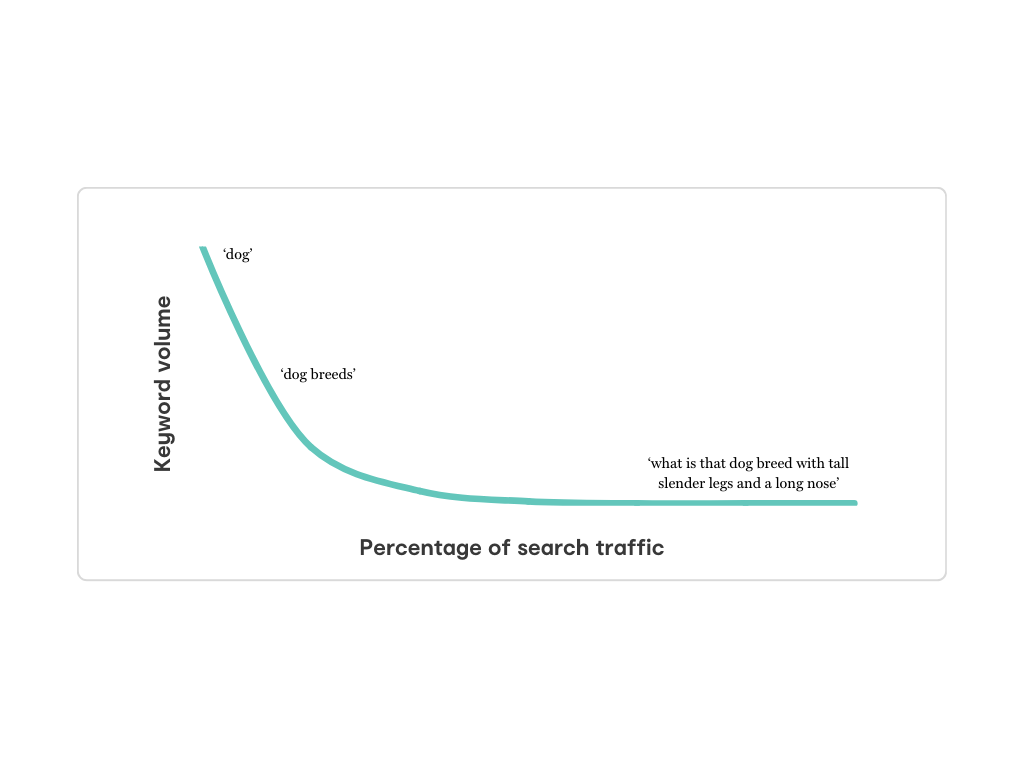Understanding Search Intent in SEO
You may have heard talk of search intent and ensuring you’re meeting that in the context of your digital marketing efforts. But what does that refer to?
As a concept, its reach stretches across several digital marketing channels. Let’s explore.

What is search intent?
Search intent refers to the inferred intent behind any given user’s searches online – it’s largely self-explanatory. It’s a term coined to describe the less-obvious semantics that are at play in the realm of SEO and paid media such as Google Ads. Here’s a simple example:
Consider these two keywords: ‘dentist’ and ‘dental work’. Similar enough, right?
What you’ll find however, is that searching these two in Google or another search engine is likely to produce a very noticeable difference in the overall landscape of results.
The former is much more likely to return you with results showing dentists’ office near you as the primary results, while the latter shows auxiliary information about different kinds of procedures that are available to you.
The difference in the kinds of websites Google chooses to prioritise here is apparent; with the first being local dental offices while the latter are health organisations and government institutions. While there is overlap, it’s clear that the overall makeup of the results pages is far from the same. This is a perfect example of the differing search intent that can be drawn from keywords that, at face value, denote very similar things.
The different types of search intent
Generally speaking, search intent can be categorised into one of four buckets: informational, commercial, transactional and navigational.
Informational: Consider the last time you had a question you didn’t know the answer to, or a topic you wanted to learn more about. You probably made an informational search as a result! These searches are extremely common.
Examples: ‘when is the next full moon’, ‘how to write a resume’, ‘caffeine effects’.
Commercial: Commercial searches are for those times spent researching products or services. Someone looking to redecorate their living space or find their next romance novel is likely to be making this kind of search through a search engine, where they can peruse and weigh up their options.
Examples: ‘return flights to Tokyo’, ‘best home espresso machine’, ‘smart casual dresses’.
Transactional: This is another goods and services related search, but more mature and specific than a commercial search. These searches are for users looking for a specific product or service and are ready to make a purchase, submit an enquiry or make a booking.
Examples: ‘apple airpods’, ‘leather two-seater couch’, ‘fuel near me’.
Navigational: Finally, navigational searches are those where users are looking for a specific page or website. These will typically be branded in nature, detailing the website they’re after as well as some accompanying information that’s more specific as required.
Example: ‘TikTok login’, ‘google business profile’, ‘alpha digital’.
Side note: You’ll notice as we move from informational and through to navigational searches, comparisons can be made to the different stages of the marketing funnel. Informational searches are broader in their reach, making them more effective at building salience and brand awareness. Commercial and transactional are closer to the middle of the funnel and the consideration phase. Finally, navigational searches are for those that already have an affinity for your brand and may even be repeat visitors.
Why identifying search intent is Important
First, we need to set the scene a little.
It’s hard to even fathom the sheer scale of the modern-day usage of Google and other search engines. According to Hubspot, it’s estimated that 99,000 Google searches are conducted on average every second, equating to 8.5 billion a day.
When we look at the way in which these 8.5 billion daily searches are distributed across keywords, we can see that the 500 most-searched keywords equate for a staggering 8.4% of all search volume (according to Backlinko). The spread looks akin to the below, with a comparatively tiny number of highly trafficked keywords attracting an enormous number of searches on an average day.

These keywords are often defined as fat-head (short queries with enormous volume and broad intent) and long-tail (longer keywords that attract much less volume but are very specific in their intent).
Identifying search intent is important because of this sheer sense of scale. It’s important to target queries with a search intent that matches with your website and ultimately, your goals. The bar is not only being set ever higher by your competition – but also by Google. Without answering intent, your page won’t rank reliably against the ever-growing list of search competitors.
How do I choose my target keywords?
Firstly, we need to be realistic about our ranking ability against our competition. SEO is a zero-sum game, meaning all gains must come at the expense of other websites targeting the same keywords. Competing with a website such as Wikipedia on fat-head keywords is a big ask, and not a realistic expectation for the vast majority.
Also, you’re hopefully familiar with the terminology and phrasing your target audience uses, so be sure to be led by that in your search. If there are particular industry terms commonly used by your audience, this knowledge could reveal some niche long-tail keywords to you.
In short: be realistic with your ambition, be considerate of how your audience searches, and answer search intent.
How do I know my content answers search intent?
Search the query yourself. This is probably the easiest way to get a clearer picture about what kinds of results Google wants to return for any given query. What comes up? Be considerate of location and other factors that will influence your result.
Use a keyword research tool. Platforms such as Ahrefs and SEMRush have a heap of useful research tools that will help organise semantically similar keywords into topics, ultimately giving you a better idea of the keywords that can be targeted together, for example.
Nailing your search strategy
Unsure of where to start? A well-considered approach to search is critical to your success in this area of your digital presence. At Alpha Digital, we’ve got the know how to help guide you through the next stages of your marketing journey. Contact us today and start the conversation!